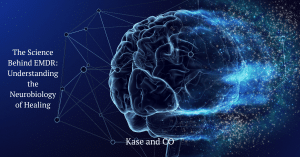Blog
Welcome! We are glad you are here. Check out our latest blogs below. Our team hopes you find these helpful and valuable.
Dorsal Vagal Shutdown: A Holistic Approach to Recovery and Resilience
Dorsal Vagal Shutdown A Holistic Approach to Recovery and Resilience Ever felt like your body has hit an invisible wall, leaving you numb or disconnected in the midst of stress? This isn’t just in your head—it’s a physical response called dorsal vagal shutdown, rooted deep within our nervous system. Grasping
Polyvagal Techniques for Nervous System Regulation
Polyvagal Techniques for Nervous System Regulation A Step-by-Step Guide Ever feel like your body’s stress responses seem to have a mind of their own? Understanding and regulating our nervous system can often feel like unraveling a complex puzzle. Polyvagal theory sheds light on this intricate network and provides strategies for
How To Get EMDR Certified
How To Get EMDR Certified Being able to provide a transformative therapy with clients heal from psychological trauma is life changing. Before diving into the specifics of getting certified, it’s important to understand what EMDR (Eye Movement Desensitization and Reprocessing) therapy is. As a blend of psychotherapy techniques and bilateral
EMDRIA Approved Certification
EMDRIA Approved Certification Why It’s So Important! Imagine transforming lives by helping people heal from deep-rooted trauma. EMDR therapy makes this possible. Before diving into EMDR certification, let’s understand its backdrop. EMDR, or Eye Movement Desensitization and Reprocessing, is a revolutionary psychological treatment. Knowing about EMDRIA, (or the EMDR International Association),
Benefits of Getting EMDR Certified
Benefits of Getting EMDR Certified Have you ever been curious about the the benefits of getting EMDR Certified? In this thorough overview, we dive into all the details! Imagine unlocking a new level in your therapy practice that could transform the lives of clients struggling with trauma. EMDR, or Eye
EMDR Trained vs EMDR Certified
EMDR Trained vs EMDR Certified Growing Your Therapeutic Skills Curious what the difference between EMDR Trained vs. Certified is? Looking for more information on EMDR training? Imagine diving into the human mind’s most intricate layers to heal traumas from within. That’s where Eye Movement Desensitization and Reprocessing (EMDR) therapy comes
Understanding the 8 Phases of EMDR Therapy
Understanding the 8 Phases of EMDR Therapy Have you ever wondered how the mind heals from psychological trauma? EMDR therapy offers an alternative route for those seeking to overcome past pain. Developed by Francine Shapiro in the late 1980s, Eye Movement Desensitization and Reprocessing (EMDR) has gained worldwide recognition for
Is EMDR Certification Worth It? Exploring the Value
Is EMDR Certification Worth It? Exploring the Value Ever wondered what it would take to upgrade your therapeutic toolkit to the next level? Ever ask yourself ‘is EMDR Certification worth it’? EMDR therapy, a buzzword in the world of psychology, has gained a reputation as a game-changer for trauma treatment.
EMDR Explanation For Clients
EMDR Explanation For Clients EMDR Explanation For Clients: Introduction Eye Movement Desensitization and Reprocessing (EMDR) is an effective and evidence-based therapy primarily used to treat trauma and other related conditions. As an EMDR therapist, you often need to explain the intricacies of this therapy to your clients in a clear

The Power of the Vagus Nerve
In today’s fast-paced world, understanding and managing our body’s response to stress and environmental stimuli is crucial for maintaining mental and physical health.

Kase & CO’s New Trauma-Informed Courses
Understanding and treatment of trauma are more critical than ever, Kase & CO Training and Consulting stands at the forefront of a significant shift in mental health education. Founded on the principles of Eye Movement Desensitization and Reprocessing (EMDR) training, Kase & CO has carved a niche as a premier provider of advanced clinical courses for trauma therapists. However, recognizing the pervasive impact of trauma across all segments of society, we are proud to announce our evolutionary leap forward: expanding our curriculum to offer comprehensive trauma-informed training courses accessible not just to professionals in the psychotherapy space but to the general public as well.

Integrating Polyvagal Theory (PVT) and EMDR
The intersection of Polyvagal Theory and Eye Movement Desensitization and Reprocessing (EMDR) presents a fascinating and powerful approach to therapy, yet the practical integration of these two cutting-edge models has remained an uncharted territory, until now. As a seasoned EMDR therapist and Licensed Clinical Social Worker who delved into Polyvagal Theory in 2018, I have personally witnessed the transformative synergy between these approaches. This is exactly what led me to build a bridge for my fellow EMDR therapy practitioners, yearning for a more robust and compassionate approach for applying the 8 phases of EMDR and bilateral stimulation. I felt called to write Polyvagal Informed EMDR: A Neuro-Informed Approach to Healing, (Published in 2023, Rebecca Kase) to offer a bridge between these two practical models and to better use the knowledge of neurobiology as a guide in the trauma recovery and healing journey.

What Is Trauma?
Through a blend of neuroscience, psychology, spirituality, and heartfelt personal narratives, Rebecca opens a window into the nuanced world of trauma. This exploration is not just academic; it’s a beacon of hope and understanding for anyone touched by trauma’s far-reaching shadows. As we unfold the layers of trauma’s definition, impact, and the pathways to resilience, this blog post aims to mirror the episode’s comprehensive approach, providing readers with a holistic view of trauma informed by science, empathy, and real-life experiences.

Addressing Common Myths About EMDR
Eye Movement Desensitization and Reprocessing (EMDR) stands as a transformative approach to healing trauma. Yet, despite its proven effectiveness, EMDR therapy often finds itself shrouded in myths and misconceptions that can hinder a true understanding of its potential.

Tips For Marketing Your Private Therapy Practice
In the landscape of therapy practice, effective marketing has become an indispensable tool for therapists looking to connect with their target audience and build a thriving private practice.

Beyond PTSD: EMDR’s Role in Treating Complex Trauma
Complex trauma is a term used to describe prolonged, repeated exposure to traumatic events, often beginning in childhood and affecting an individual’s overall development. Unlike a single traumatic incident, complex trauma encompasses a range of experiences such as abuse, neglect, and community violence, which can have lasting effects on a person’s emotional, cognitive, and physical well-being.

The Science Behind EMDR
In the realm of psychotherapy, Eye Movement Desensitization and Reprocessing (EMDR) stands out as a powerful and widely embraced approach to trauma treatment. Behind its success lies a fascinating interplay between the therapeutic process and the intricate workings of the human brain

What is EMDR & Benefits of Doing EMDR
Eye Movement Desensitization and Reprocessing (EMDR) is a psychotherapy approach that has gained popularity in recent years for its effectiveness in treating trauma and other mental health issues. EMDR utilizes a combination of bilateral stimulation, such as eye movements or tapping, and cognitive processing to help individuals process and heal from distressing memories and experiences.
EMDR and Somatic Experiencing Therapy
Exploring the Intersection of: EMDR and Somatic Experiencing Has the journey of healing ever seemed like an uncharted territory, a blend of science and the intangible aspects of human experience? In the realm of psychological therapies, two powerful modalities, EMDR and Somatic Experiencing, have emerged as beacons for those traversing

